
Exploring the Historic Heart of Ghent
The Historic Center of Ghent is a stunning tapestry of medieval architecture, winding canals, and vibrant culture. As you stroll through its cobblestone streets, you'll be enchanted by the blend of old-world charm and contemporary buzz. The skyline is dominated by the iconic trio of towers: Saint Nicholas' Church, the Belfry, and Saint Bavo's Cathedral, each offering a unique glimpse into the city's storied past. In the heart of the Historic Center, you'll find the Gravensteen Castle, a formidable fortress that dates back to the 12th century. This meticulously preserved castle offers panoramic views of the city from its battlements, as well as a fascinating museum that delves into Ghent's medieval history. Nearby, the Graslei and Korenlei quays are perfect spots to relax by the water, enjoy a boat tour, or dine at one of the many charming cafes and restaurants lining the canals. Art and history enthusiasts will be captivated by the Museum of Fine Arts and the STAM Ghent City Museum, both of which house impressive collections that span centuries. For a taste of local life, visit the bustling Vrijdagmarkt Square, where you can wander through markets, enjoy street performances, and sample traditional Belgian treats. The Historic Center of Ghent is not just a destination; it's an experience that promises to linger in your memories long after you've left.
Local tips in Historic Center
- Visit early in the morning to avoid crowds at popular sites like Gravensteen Castle and Saint Bavo's Cathedral.
- Take a guided boat tour for a unique perspective on Ghent's beautiful canal-side architecture.
- Don't miss the Ghent Altarpiece at Saint Bavo's Cathedral, a masterpiece of Flemish art.
- Wear comfortable shoes; the cobblestone streets can be uneven and tiring to walk on.
- Try local delicacies like Gentse Waterzooi and Belgian waffles from street vendors for an authentic culinary experience.
Exploring the Historic Heart of Ghent
The Historic Center of Ghent is a stunning tapestry of medieval architecture, winding canals, and vibrant culture. As you stroll through its cobblestone streets, you'll be enchanted by the blend of old-world charm and contemporary buzz. The skyline is dominated by the iconic trio of towers: Saint Nicholas' Church, the Belfry, and Saint Bavo's Cathedral, each offering a unique glimpse into the city's storied past. In the heart of the Historic Center, you'll find the Gravensteen Castle, a formidable fortress that dates back to the 12th century. This meticulously preserved castle offers panoramic views of the city from its battlements, as well as a fascinating museum that delves into Ghent's medieval history. Nearby, the Graslei and Korenlei quays are perfect spots to relax by the water, enjoy a boat tour, or dine at one of the many charming cafes and restaurants lining the canals. Art and history enthusiasts will be captivated by the Museum of Fine Arts and the STAM Ghent City Museum, both of which house impressive collections that span centuries. For a taste of local life, visit the bustling Vrijdagmarkt Square, where you can wander through markets, enjoy street performances, and sample traditional Belgian treats. The Historic Center of Ghent is not just a destination; it's an experience that promises to linger in your memories long after you've left.
Iconic landmarks you can’t miss
Gravensteen
Explore the captivating history and stunning architecture of Gravensteen, Ghent's iconic medieval castle, steeped in centuries of fascinating tales.
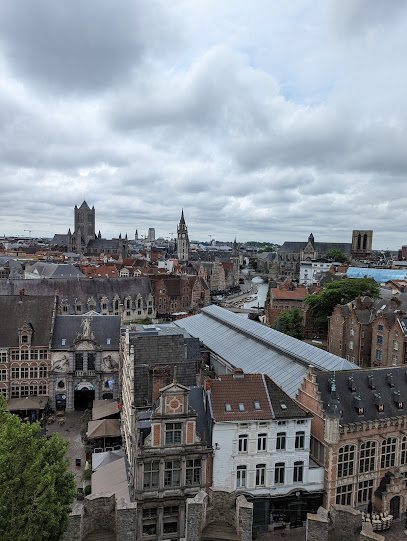
Belfry of Ghent
Explore the Belfry of Ghent, a UNESCO World Heritage Site with stunning views, rich history, and captivating Gothic architecture in the heart of Belgium.
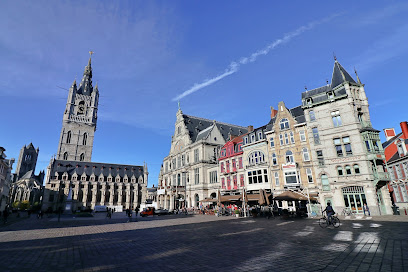
Stadshal / City Pavilion
Explore Stadshal in Ghent, a beautiful City Pavilion blending modern architecture with historical charm, a cultural hub for locals and tourists.
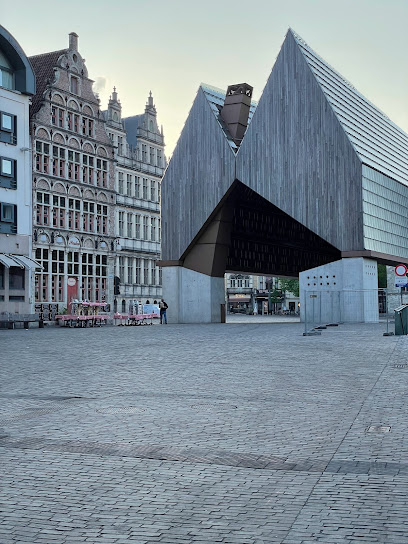
Ghent City Hall
Explore the stunning architecture and rich history of Ghent City Hall, a must-visit landmark in the heart of Belgium's vibrant Ghent.
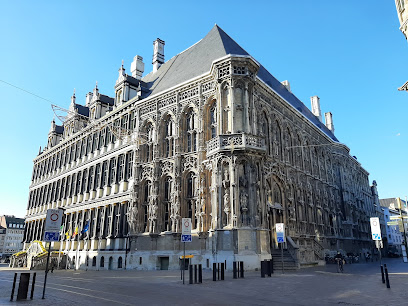
Saint Bavo's Abbey
Explore the serene beauty and rich history of Saint Bavo's Abbey, a peaceful haven in the heart of Ghent, Belgium.
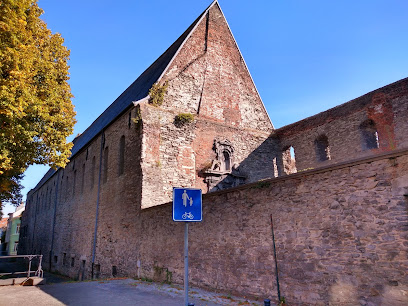
Sint-Baafsplein
Explore Sint-Baafsplein, Ghent's historic square, with stunning architecture, vibrant cafes, and cultural landmarks that capture the spirit of Belgium.
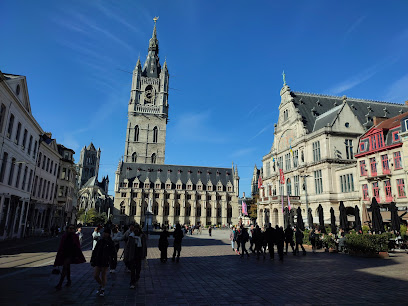
Metselaarhuis
Discover the architectural beauty of Metselaarhuis, a historic gem in Ghent that showcases the city's medieval charm and rich cultural heritage.
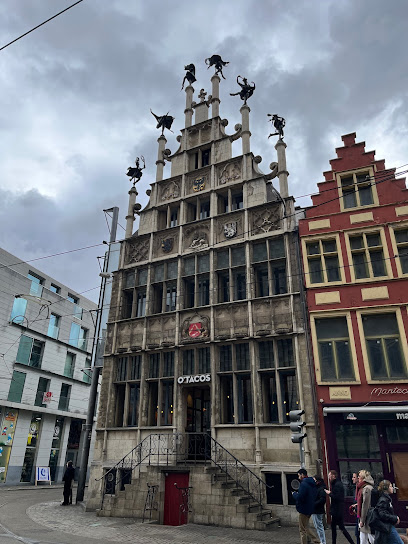
Treaty of Ghent Marker
Explore the Treaty of Ghent Marker in Ghent, a historical landmark that commemorates the peace treaty ending the War of 1812 amidst vibrant local culture.
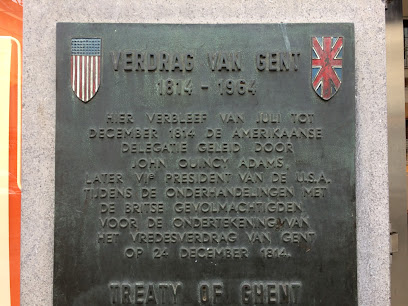
Sint-Jorishof
Explore the exquisite Sint-Jorishof in Ghent, a historical landmark showcasing Belgium's rich architectural heritage.
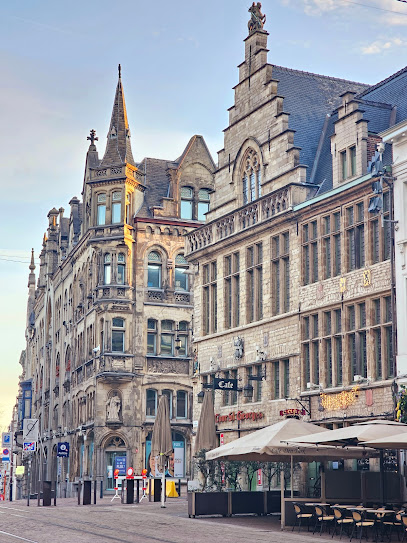
Sire van Maldegem
Discover the historical elegance of Sire van Maldegem in Ghent, a landmark that encapsulates the city's rich heritage and architectural beauty.
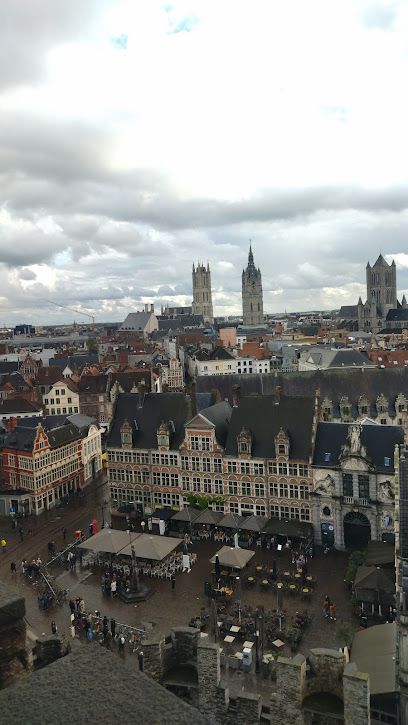
Unmissable attractions to see
Leopold Barracks
Discover the historical significance of Leopold Barracks in Ghent, a stunning landmark reflecting Belgium's military heritage and architectural beauty.
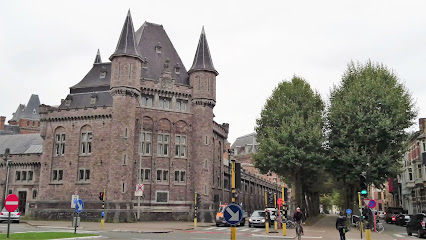
De Stervende Gladiator
Discover the poignant beauty of De Stervende Gladiator in Ghent, an iconic sculpture that encapsulates the spirit of resilience and artistry.
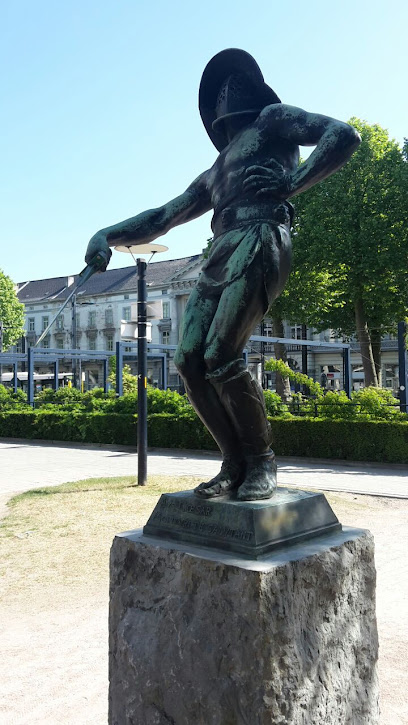
Essential places to dine
Frites Atelier | Gent
Experience the essence of Belgian cuisine at Frites Atelier in Ghent - home to gourmet fries and unique dipping sauces.
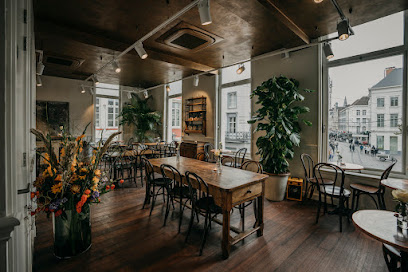
Pakhuis
Discover the vibrant flavors of Ghent at Pakhuis - where history meets contemporary cuisine in a stunning setting.
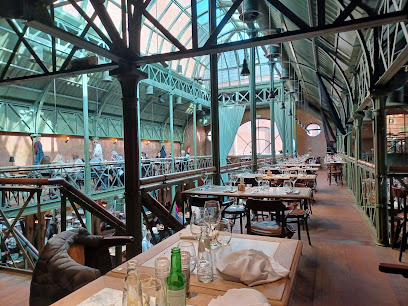
Du Progres
Discover the flavors of Belgium at Du Progres in Ghent - where delightful cuisine meets charming ambiance.
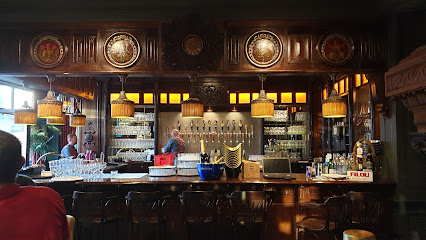
't Oud Clooster
Experience authentic Belgian cuisine at 't Oud Clooster in Ghent, where tradition meets taste in a cozy atmosphere.
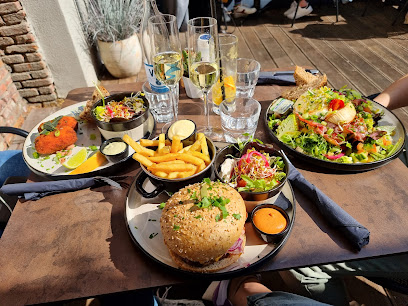
Mémé Gusta
Experience authentic Belgian cuisine at Mémé Gusta in Ghent - where tradition meets flavor in every dish.
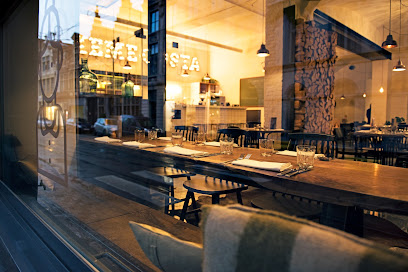
De Stokerij
Experience authentic Belgian cuisine at De Stokerij in Ghent - where local flavors meet artisanal craftsmanship.
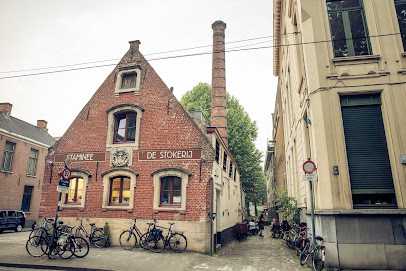
Maison Elza
Experience exquisite Belgian dining at Maison Elza in Ghent, where tradition meets modern culinary artistry.
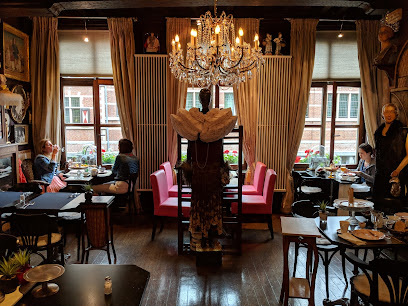
Karel de Stoute
Experience exquisite Belgian cuisine at Karel de Stoute in Ghent, where every dish tells a story of local flavors and culinary artistry.
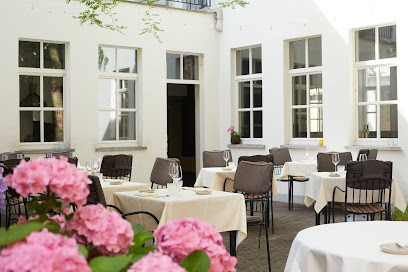
LOF Restaurant
Discover culinary excellence at LOF Restaurant in Ghent – where innovative dishes meet local flavors in an inviting atmosphere.
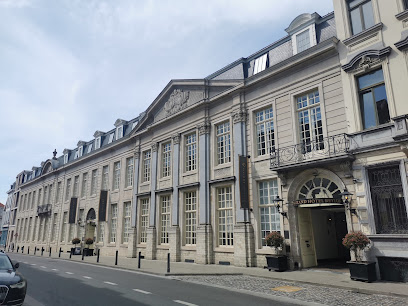
Heritage
Experience exquisite local cuisine at Heritage in Ghent, where tradition meets innovation for an unforgettable dining adventure.
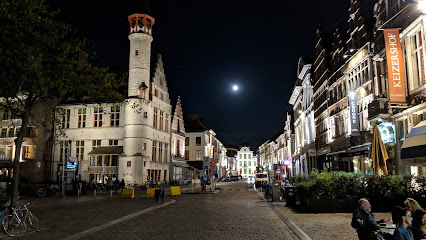
Markets, malls and hidden boutiques
Shoppingcenter Gent Zuid
Explore Shoppingcenter Gent Zuid: Ghent's vibrant shopping mall with diverse stores, delightful dining, and a lively atmosphere for all visitors.
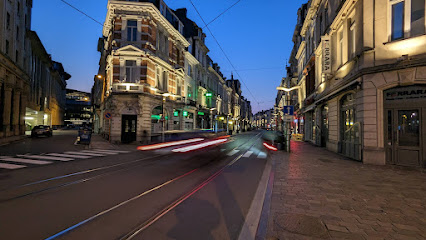
Dok Noord
Discover Dok Noord in Ghent: a vibrant shopping mall with diverse stores, delightful cafés, and exciting events in a modern setting.
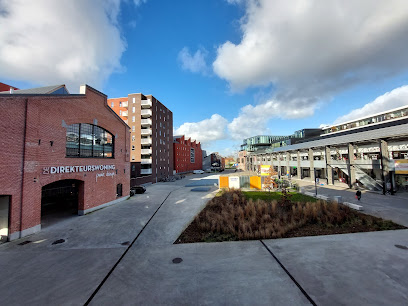
Think Twice
Explore sustainable fashion at Think Twice, Ghent's premier used clothing store for unique and stylish finds.
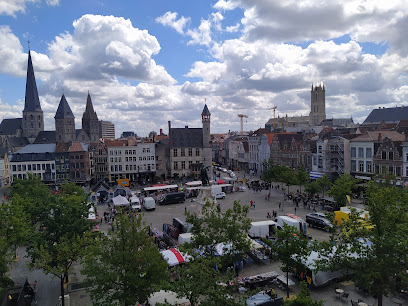
Houthuis Gent - Retro Shop
Explore Houthuis Gent, a charming retro shop in Ghent, Belgium, offering unique gifts and vintage treasures perfect for every souvenir lover.
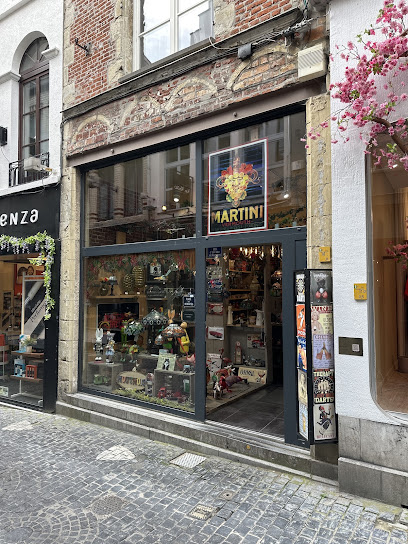
CASA Gent Korenmarkt
Explore CASA Gent Korenmarkt for a unique selection of gifts, home goods, and garden furniture in the heart of Ghent, Belgium.
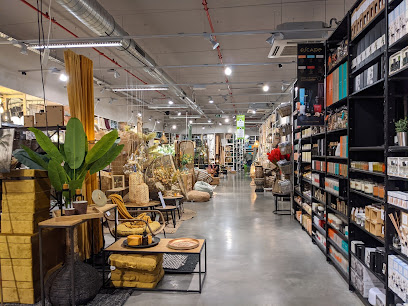
& Other Stories
Explore & Other Stories in Ghent for chic women's clothing and accessories that blend modern design with timeless elegance.
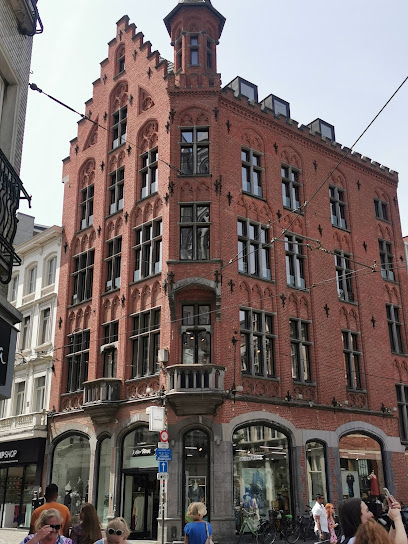
Vandezande - Martine
Discover authentic Belgian souvenirs at Vandezande / Martine, a charming shop in Ghent offering unique local crafts and memorable gifts.
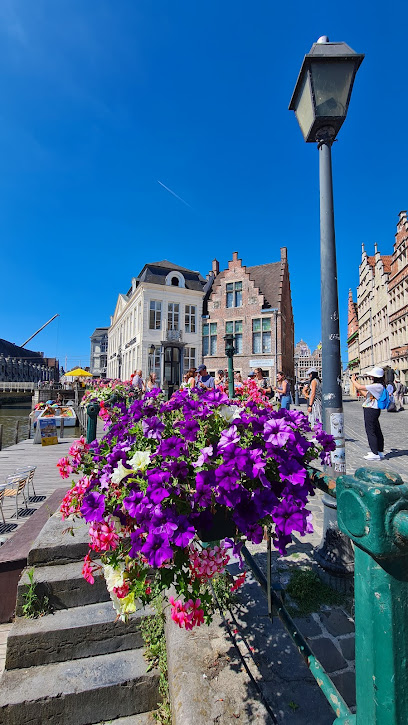
A'pril
Explore A'pril in Ghent for unique gifts and exquisite maps that capture the charm of this historic city.
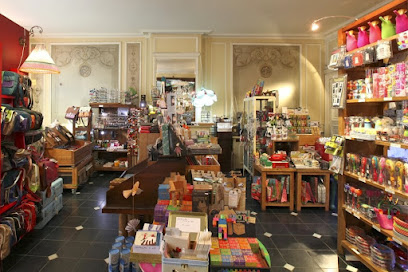
Belgian Treasures
Explore Belgian Treasures in Ghent for unique souvenirs reflecting the rich culture and heritage of Belgium.
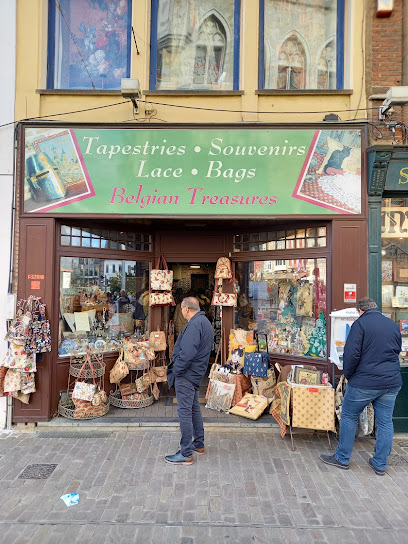
Agnes & Maurice
Explore the unique offerings at Agnes & Maurice Boutique in Ghent, where local craftsmanship meets contemporary style in a charming setting.
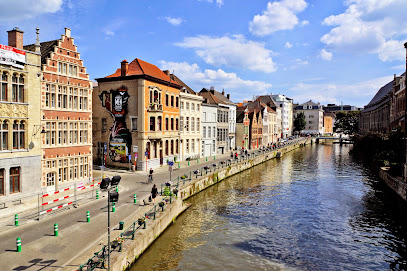
Essential bars & hidden hideouts
Dulle Griet
Discover Dulle Griet, Ghent's iconic pub offering an unparalleled selection of beers and a taste of local culture in a vibrant atmosphere.
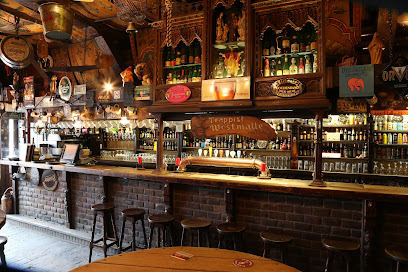
Patrick Foley's
Experience the warmth of Irish hospitality at Patrick Foley's, a beloved pub in Ghent offering authentic cuisine and a vibrant atmosphere.
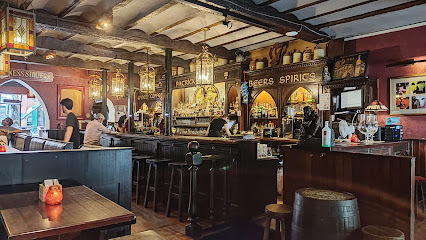
't Galgenhuis
Experience the warmth and charm of 't Galgenhuis, a historic pub in Ghent, perfect for enjoying local beers and traditional Belgian cuisine.
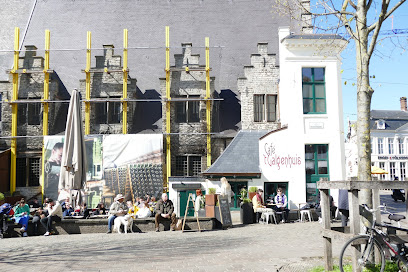
The Celtic Towers Irish Pub
Discover the heart of Irish culture in Ghent at The Celtic Towers Irish Pub, where great food, drinks, and friendly vibes await you.
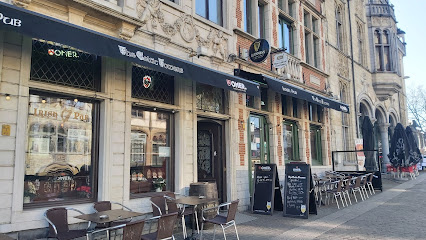
't Dreupelkot
Discover the essence of Ghent at 't Dreupelkot, where over 200 types of jenever await in a cozy, inviting atmosphere.
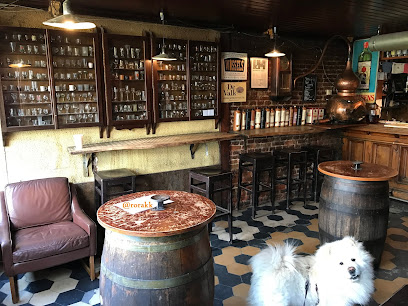
De Alchemist
Experience the vibrant atmosphere and extensive drink menu at De Alchemist, a beloved pub in Ghent offering a taste of Belgian culture.
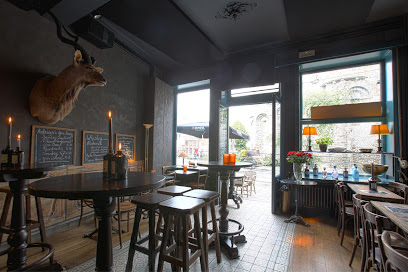
Bar des Amis
Experience the vibrant nightlife of Ghent at Bar des Amis, where great drinks and a lively atmosphere await every visitor.
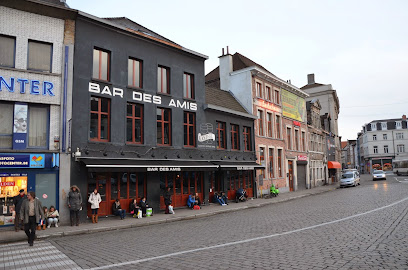
De Maecht van Ghent
Experience the lively nightlife of Ghent at De Maecht van Ghent, where bar culture meets club energy in a vibrant atmosphere.
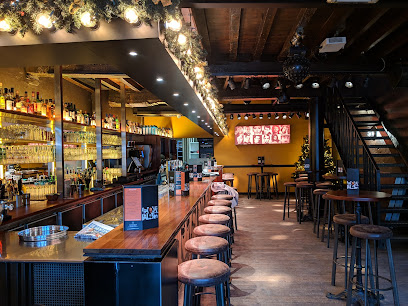
Bar Oswald
Discover the lively ambiance of Bar Oswald in Ghent, where locals and tourists mingle over drinks in a unique setting.
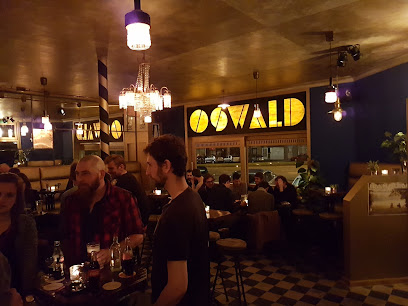
The Cobbler - Gent
Discover The Cobbler, a captivating bar in the heart of Ghent, where local drinks meet stunning views along the historic Graslei.
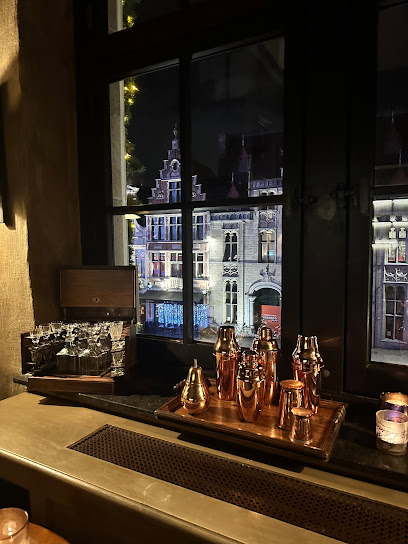
Local Phrases
-
- HelloHallo
[HAH-loh] - GoodbyeTot ziens
[tot zeens] - YesJa
[yah] - NoNee
[nay] - Please/You're welcomeAlstublieft
[AHL-stu-bleeft] - Thank youDank u
[dahnk oo] - Excuse me/SorrySorry
[SOR-ee] - How are you?Hoe gaat het met u?
[hoo gat het met oo] - Fine. And you?Goed. En met u?
[khoot. en met oo] - Do you speak English?Spreekt u Engels?
[spraykt oo ENG-els] - I don't understandIk begrijp het niet
[ik buh-GRAYP het neet]
- HelloHallo
-
- I'd like to see the menu, pleaseIk zou graag de menukaart willen zien, alstublieft
[ik zou khraakh duh mernoo-kart VIL-len zeen, AHL-stu-bleeft] - I don't eat meatIk eet geen vlees
[ik ayt khayn vlays] - Cheers!Proost!
[prohst] - I would like to pay, pleaseIk zou graag willen betalen, alstublieft
[ik zou khraakh VIL-len buh-TAH-len, AHL-stu-bleeft]
- I'd like to see the menu, pleaseIk zou graag de menukaart willen zien, alstublieft
-
- Help!Help!
[help] - Go away!Ga weg!
[ga veg] - Call the Police!Bel de politie!
[bel duh poh-lee-see] - Call a doctor!Bel een dokter!
[bel an dok-ter] - I'm lostIk ben verdwaald
[ik ben vur-dwahld] - I'm illIk ben ziek
[ik ben zik]
- Help!Help!
-
- I'd like to buy...Ik zou graag willen kopen...
[ik zou khraakh VIL-len KO-pen] - I'm just lookingIk ben gewoon aan het kijken
[ik ben khuh-WOON ahn het KEEK-en] - How much is it?Hoeveel kost het?
[HOO-vale kost het] - That's too expensiveDat is te duur
[dat is tuh doo-er] - Can you lower the price?Kunt u de prijs verlagen?
[kunt oo duh preys vur-LAH-hen]
- I'd like to buy...Ik zou graag willen kopen...
-
- What time is it?Hoe laat is het?
[hoo laht is het] - It's one o'clockHet is een uur
[het is an oor] - Half past (10)Half elf
[hahlf elf] - MorningOchtend
[OCH-tend] - AfternoonNamiddag
[NA-mid-dahkh] - EveningAvond
[AH-vont] - YesterdayGisteren
[GIST-uh-ren] - TodayVandaag
[vahn-dahkh] - TomorrowMorgen
[MOR-ghen] - 1Een
[een] - 2Twee
[tway] - 3Drie
[dree] - 4Vier
[veer] - 5Vijf
[vayf] - 6Zes
[zehs] - 7Zeven
[zay-ven] - 8Acht
[ahkht] - 9Negen
[nay-ghen] - 10Tien
[teen]
- What time is it?Hoe laat is het?
-
- Where's a/the...?Waar is een/de...?
[vahr is an/de] - What's the address?Wat is het adres?
[vaht is het AH-dres] - Can you show me (on the map)?Kunt u mij laten zien (op de kaart)?
[kunt oo may lah-ten zeen (op de kaart)] - When's the next (bus)?Wanneer is de volgende (bus)?
[vahn-er is de vol-HEN-duh (bus)] - A ticket (to ....)Een ticket (naar ....)
[een ticket (nar)]
- Where's a/the...?Waar is een/de...?
History of Historic Center
-
Ghent's historic center dates back to the Roman era, with the establishment of the settlement 'Ganda' around the 1st century AD. The strategic location at the confluence of the River Lys and the River Scheldt facilitated trade and defense, leading to its growth as a significant trading post.
-
In the Middle Ages, particularly during the 12th to 15th centuries, Ghent became one of the most prosperous cities in Europe, thanks to the flourishing textile industry. The construction of iconic landmarks, such as the St. Bavo's Cathedral and the Gravensteen castle, reflects this period of wealth and power.
-
One of the most significant artworks in the world, the Ghent Altarpiece, was completed in 1432 by the artist Jan van Eyck. This masterpiece is housed in St. Bavo's Cathedral and is a prime example of early Netherlandish painting, showcasing the artistic achievements of the period.
-
The Ghent Uprising was a significant revolt by the citizens against the oppressive rule of Philip the Good, Duke of Burgundy. This event was pivotal in shaping the political landscape of the region, leading to a temporary independence for Ghent and highlighting the city's role in the struggle for civic rights.
-
The 19th century brought about rapid industrialization in Ghent, transforming it into a center for coal and cotton industries. The construction of the first railway line in Belgium in the 1830s further boosted economic growth and connectivity, reshaping the city's landscape and demographics.
-
During both World Wars, Ghent faced significant challenges, including occupation and devastation. The city was a strategic location due to its industrial capabilities, which made it a target for bombings and military operations, leaving a lasting impact on its infrastructure and community.
-
In recent years, Ghent's historic center has experienced a cultural renaissance, emphasizing arts, music, and gastronomy. Events like the Gentse Feesten, an annual arts festival, celebrate the city's rich history and vibrant contemporary culture, attracting visitors from around the globe.
Historic Center Essentials
-
The Historic Center of Ghent is easily accessible from other neighborhoods and cities. From Ghent's main train station, Gent-Sint-Pieters, you can take a local tram (Line 1) or bus to the city center. If you're coming from Brussels, direct trains run frequently and take about 30 minutes. Once in Ghent, the Historic Center is a short walk from the tram and bus stops.
-
Exploring the Historic Center is best done on foot, as many attractions are within walking distance. The city also has a reliable tram and bus network, with trams running frequently. Bicycle rentals are popular, and there are designated bike lanes throughout the area. For a unique experience, consider renting a pedal boat to navigate the canals.
-
The Historic Center of Ghent is generally safe for tourists. However, it is advisable to stay vigilant, especially in crowded areas like the Gravensteen Castle and the Korenmarkt. Petty crimes such as pickpocketing can occur, particularly during busy events or festivals. Avoid poorly lit areas at night, especially around the outskirts of the center.
-
In case of emergency, dial 112 for police, fire, or medical assistance. The local hospital, UZ Gent, is equipped for serious medical emergencies. For minor health concerns, pharmacies are widely available and can provide over-the-counter medications. It is advisable to have travel insurance that covers medical emergencies.
-
Fashion: Do wear comfortable shoes for walking; cobblestone streets can be uneven. Don't wear overly casual attire when visiting religious sites. Religion: Do respect the local customs, especially in churches; cover your shoulders and knees when visiting. Public Transport: Do validate your ticket before boarding. Don't eat or drink on public transport. Greetings: Do greet locals with a friendly 'Hallo' or 'Bonjour'. Don't forget to say 'Dank u' when receiving help or service. Eating & Drinking: Do try local specialties like Waterzooi and Belgian fries. Don't engage in loud conversations in restaurants, as locals appreciate a quieter dining experience.
-
To experience the Historic Center like a local, try visiting the small cafes and eateries tucked away from the main tourist paths for authentic Belgian cuisine. Attend local festivals or markets for a taste of Ghent's vibrant culture. Engage with local artisans in the Patershol district, where you can find unique handmade crafts. Additionally, taking a stroll along the riverbanks during sunset offers breathtaking views of the illuminated medieval buildings.
Nearby Cities to Historic Center
-
Things To Do in Aalst
-
Things To Do in Bruges
-
Things To Do in Kortrijk
-
Things To Do in Knokke-Heist
-
Things To Do in Zeebrugge
-
Things To Do in Brussels
-
Things To Do in Blankenberge
-
Things To Do in Antwerp
-
Things To Do in Mechelen
-
Things To Do in De Haan
-
Things To Do in Tournai
-
Things To Do in Ostend
-
Things To Do in Ostend-Bruges International Airport
-
Things To Do in Ypres
-
Things To Do in Lille













